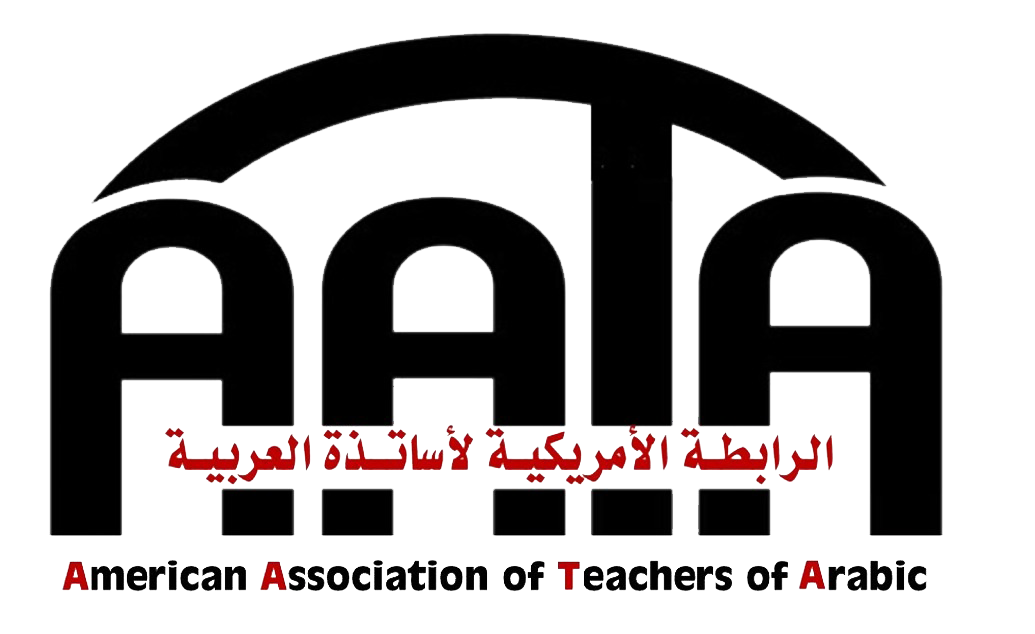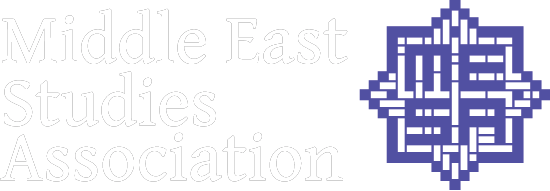FRIDAY, SEPTEMBER 23, 2016
8:00 - 8:20 Registration
8:20 - 8:30 Welcome - Opening Remark
PHONOLOGY
8:30 - 9:00 The L2 Acquisition of Arabic Final Consonant Clusters by L1 Chinese Speakers
Mona Mohamed El Moataz, Alexandria University
9:00 - 9:30 The Perception and Production of Arabic Lexical Stress by Learners of Arabic: A Usage-Based Account
Cheng-Wei Lin, University of Michigan
9:30 - 10:00 The Contribution of Phonetics in Learning Arabic as a Second Language through Reading: The Case of Some Arabic Emphatic Consonants
Bouguerra Cheddad and Nacereddine Benabdallah, Mohamed Chérif Messaadia University
10:00 - 10:30 Vocalization impact on the reading skills for beginner learners of Arabic
Maysoon Al Sayed Ahmad, University of Mary Washington
10:15 - 10:45 Coffee Break
10:45 - 11:45 Keynote Address: Fitting Arabic and English into one Brain: Insights from Gating and Semantic Priming
Sami Boudelaa, University of UAE & Cambridge University
TEACHING TECHNIQUES/STRATEGIES
11:45 - 12:15 Effectiveness of Metacognitive Debugging Skills Training in Reducing Reading Deficiency among Non-Arabic Speaker Students Regarding Levels of the Common European Framework of Reference for Languages
Waleed Radwan, Buraydah Colleges, and Hamdy Elfaramawy, Minoufyia University
12:15 - 12:45 Gallery Walk: An Alternative Learning Strategy in Increasing Students’ Active Learning
Muhammad Ridwan, Hasanuddin University
12:45 - 1:15 The Effectiveness of Strategic Teaching in Reducing Meta-Reading Deficit among EFL and Arabic as a Second Language Learners with Reading Difficulties
Waleed Radwan, Buraydah Colleges, and Hala Bakry, Minoufyia University
1:15 - 3:00 Lunch Break
DISCOURSE & WRITING
3:00 - 3:30 L2 Writing in Arabic: Discourse Analysis and Pedagogical Reflections
Dris Soulaimani, New York University Abu Dhabi
3:30 - 4:00 Second Language Learning in Arabic by Using Corpus Analysis Tools on Media Texts about Arab Uprisings: An empirical Study of Writing and Reading Processes
Nadia Makouar, INALCO, Paris
4:00 - 4:30 Importance of Pragmatic Competence in Teaching Arabic as A Foreign Language
Hafid Ismaili Alaoui, Qatar University
4:30 - 5:05 Discourse Errors: An analysis of Written Discourse Errors
Waleed Anati, Qatar University
5:00 - 5:30 The Affective Dimension of Language Use in Arabic Textbooks
Abdulkareem Said Ramadan, Gettysburg College
SATURDAY, SEPTEMBER 24, 2016
PHONOLOGY II
8:00 - 8:30 Arabic L2 Acquisition: An Ultrasound Study of Emphatics and Gutturals
Amanda Eads and Jodi Khater, North Carolina State University
8:30 - 9:00 Effects of L1-English Vowel System Transfer on L2-Arabic Production and Perception of Short and Long Vowels: Findings and Applications
Zafer Lababidi, Florida State University
9:00 - 9:30 Investigating the Perception and Production of Arabic Pharyngealized Sounds amongst L2 learners of Arabic
Hajar Binasfour, University of Reading
9:30 - 10:00 Production of Modern Standard Arabic Lexical Stress Cues by Native Speakers of American English
Mashael Al-Aloula, George Mason University
10:00 - 10:15 Coffee Break
PEDAGOGY I
10:15 - 10:45 Feedback Patterns and Awareness of Feedback in the Arabic Foreign Language Classroom
Gergana Atanassova, The Ohio State University
10:45 - 11:15 Learner Perceptions about Arabic Language Learning in the US
Maimoonah K. Al Khalil, King Saud University
11:15 - 11:45 Learners’ and Instructors’ Preferences for Integrated and Isolated Form-Focused Instruction: The Case of Arabic
Hussein M. Elkhafaifi, University of Washington
11:45 - 12:15 Spelling Errors Among College-level Students Learning Arabic
Hezi Brosh, United States Naval Academy
12:15 - 1:15 Lunch Break
LOCAL & STUDY ABROAD
1:15 - 1:45 Spoken Arabic and Short-Term Study Abroad: Impact of Social Interaction on the Acquisition of Spoken Arabic
Asma Ben Romdhane, The University of Iowa
1:45 - 2:15 Research-Based Interventions for Language and Intercultural Learning during Study Abroad
Emma Trentman, University of New Mexico
2:15 - 2:45 Spoken and Semantic Fluency of Arabic Second-language Learners during Study Abroad
Alia Lancaster, Medha Tare, Carrie Bonilla, Ewa Golonka, Matt Mermel, and Scott Jackson, University of Maryland
2:45 - 3:15 The Impact of Context and Affective Variables on Learners’ Gains in the Comprehension and Production of Arabic as L2
Meriem Sahli, Al Akhawayn University
3:15 - 3:30 Coffee Break
VOCABULARY & CULTURE
3:30 - 4:00 Looking at Words: An Eye-tracking Investigation of Incidental Vocabulary Learning from L2 Arabic Reading
Ayman A Mohamed, Michigan State University
4:00 - 4:30 Context vs Keyword Methods in Learning Arabic Vocabulary
Olla Najah Al-Shalchi, The University of Texas at Austin
4:30 - 5:00 Measuring L2 Arabic Vocabulary Acquisition with Frequency-based Assessments
Robert Ricks, Georgetown University
5:00 - 5:30 First-year Students’ Experiences of Arabic Language and Cultures: When Learners’ Expectations Meet College Classroom Reality
Brahim Oulbeid, University of Massachusetts, Amherst
6:00 - 9:00 Reception/Dinner
SUNDAY, SEPTEMBER 25, 2016
PEDAGOGY II
8:00 - 8:30 The Effects of Processing Instruction on the Acquisition of Arabic Tense and OVS Sentences
Adam Ziad, Florida Atlantic University
8:30 - 9:00 The role of Perceptual Salience in the L2 Acquisition Sequence of the Arabic Construct State
Mahmoud Azaz, University of Arizona, and Joshua Frank, The University of Texas at Austin
9:00 - 9:30 Measuring the Complexity, Accuracy, and Fluency of Written Production in Arabic
Michael Raish, Georgetown University
9:30 - 10:00 Using a Social Technology Tool to Enhance Collaborative Self-reflection among AFL Student-teachers
Raghda El Essawi, American University in Cairo
10:00 - 10:15 Coffee Break
SYNTAX & MORPHOSYNTAX
10:15 - 10:45 The processing of Agreement Morphology in Native, Heritage, and L2 Arabic
Rebecca Foote and Eman Saadah, University of Illinois at Urbana-Champaign
10:45 - 11:15 Arabic L2 Learners’ Use of Word Order and Subject-Verb Agreement for Actor Role Assignment
Jamil Al-Thawahrih, University of Utah
11:15 - 11:45 Relative Clause Attachment in Native and L2 Arabic
Abdelaadim Bidaoui, Ball state University
11:45 - 12:15 How Do Communication Problems Direct American learners of Arabic to Notice Syntax and Morphology?
Ahmed A. Alsaghiar, Kent State University
12:15 - 2:15 Lunch Break
HERITAGE LEARNERS
2:15 - 2:45 Assessing and Predicting Heritage Arabic Speakers’ Proficiencies in Standard Arabic
Abdulkafi Albirini, Utah State University
2:45 - 3:15 Linguistic Landscape in Dearborn, Michigan: Ethical Concerns
Camelia Suleiman, Michigan State University
3:15 - 3:45 Maintaining Heritage Arabic: The Effect of Age of Acquisition on Concept Mediation in Heritage Bilinguals
Iyad Ghanim, University of North Carolina at Chapel Hill
3:45 - 4:15 Performing Lived Experiences: An Analysis of Arabic Heritage Speakers’ Narratives in Two Languages
Brahim Chakrani, Michigan State University
4:15 - 4:45 One Size Fits All? Exploring Heritage and Non-heritage Language Learner Performance in UK GCSE Arabic Exams
Anna-Maria Ramezanzadeh, University of Oxford
Useful links:
Conference Program:
https://sites.lsa.umich.edu/arabic-sla-conference/program-schedule/
Conference Accommodation Information:
https://sites.lsa.umich.edu/arabic-sla-conference/accommodations/
Conference registration is free. To attend, please register, using the following link:
https://sites.lsa.umich.edu/arabic-sla-conference/registration/

